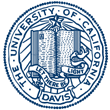Students sometimes wonder if majoring in physics is a good career move. Generally, the answer is YES! Physics majors are well qualified for a wide range of jobs.
If you've been to a career fair on your campus, you may think that technical jobs are mainly for engineering majors. Don't be deceived! Companies that go to campus career fairs are often recruiting specific types of students. Engineering majors have a large vocational component, training students for certain jobs. A recruiter who is looking for people who have exactly such-and-such training for an engineering position may well brush off any physics majors who stop by.
Physics majors are generalists, highly valued for less well-defined jobs. As a physics student, you learn a lot of math, some computer programming, some hands-on skills including electronics and computer interfacing, and how to put all these together. That's perfect for jobs that need a range of technical skills, where you may do something completely different one week from what you were working on the previous week. At a typical campus career fair, you may well find that most recruiters have no interest in you, but one or two are thrilled to talk to you. It is entirely possible to get a good job with either a Bachelor's degree or Ph.D. in physics, and unemployment is persistently low. Some of the most common career directions are data science, technical jobs related to energy, and programming. Other physics majors work at museums or planetaria, do scientific translating, teach high school, prototype parts for scientific equipment, serve as science aides in Congress or state legislatures, go into patent law, and much more.
If you want to learn more about career options, the
American Physical Society (APS)
compiles information on jobs and how to apply for them.
Don't miss the "Industrial Engagement" section of the
webinar library. More from APS is available on YouTube:
Career exploration strategies and tools
Considering a Career at a National Laboratory
Considering a Career in Industry
Skills for Physics Bachelors in the Private Sector
The Northwestern CIERA REU program in astrophysics runs a career panel each summer, which is recorded and uploaded to YouTube. They now have a decade of these panels available. Each year 4-5 scientists talk about their career paths and take questions from undergraduates.
